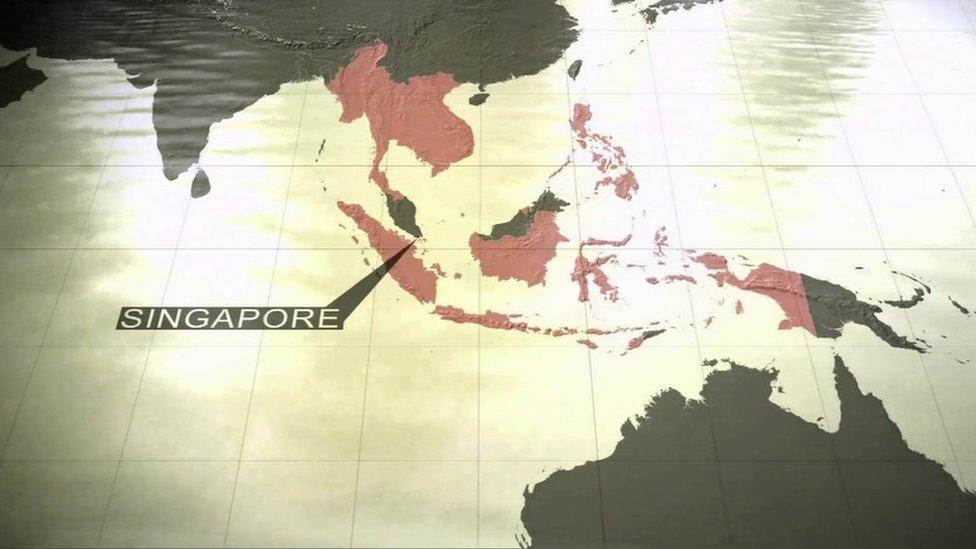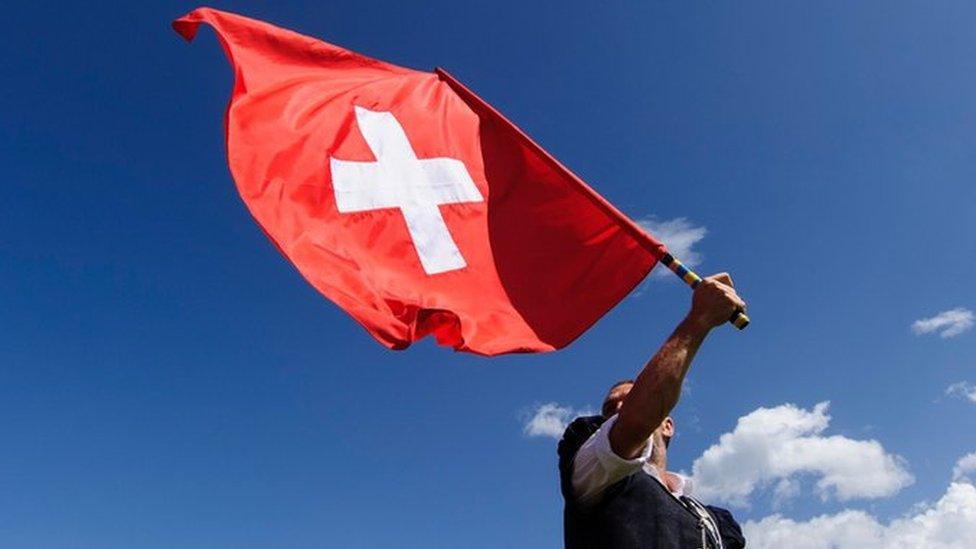Could the UK be the Atlantic Singapore?
- Published
Brexit: The Singapore lesson
From third world to first - Lee Kwan Yew, the engineer of Singapore's success, coined this catchphrase that sums up this tiny island's progress over the last 50 years.
Once a colonial backwater, it is now one of the world's richest cities and has a per capita GDP that is higher than the UK or France.
Sure, it helps to have one party in charge to push through policies, and a relatively malleable and compliant electorate - but other countries in the region have had the same government in power for a long time with nowhere near the same results as Singapore.
Singapore's leaders knew however that they couldn't survive on their own. With no natural resources and a tiny population, Singapore has always looked beyond its shores to thrive.

'Red dot'
You just have to look at a map of the region to see what a vulnerable position Singapore is in.
It's known affectionately as the "little red dot" amongst Singaporeans but the reality is this wealthy city-state is literally a pinprick in a sea of bigger, more powerful neighbours.
That's why in 1967 it pushed for the creation of the Association of South East Asian Nations (ASEAN). Singapore was one of the founding members of the grouping which today is an economic bloc of ten member states.
But it didn't stop there - Singapore also signed 21 free trade agreements with everyone from America to China. It is part of a number of multilateral agreements too, and has more than 30 trading partners.
Singapore has had to forge partnerships in the region to stay relevant, says Gillian Koh, the deputy director at the Institute of Policy Studies in Singapore.
"We knew we would survive and thrive only if we had a bustling hinterland," she says, referring to the Malay peninsula and beyond.
"We've not just been a free port for ourselves, but we've tried to foster the idea that free trade in the region is a good thing for everyone and that we would prosper one another by that idea. Singapore is seeking to benefit from the prosperity of the hinterland by becoming the trading and services hub for the region."
'Political baggage'
Observers say Singapore has had the advantage of being part of an economic agreement in ASEAN without the political baggage.
With a small population, Singapore has always had to look elsewhere to fill jobs. Four out of ten people on this island are foreigners. This has brought with it its own problems, and Singapore's government is trying to address this. But Singapore can pick and choose who it wants to let in to the country.
"In a sense, Singapore has what Britain wants," says Simon Long, a British journalist based in Singapore with The Economist.
"If you look at Singapore's situation and ASEAN, they have a single market, they have a free trade agreement, but there's no free movement of labour."
Strings
Singapore has always used its neighbours to chart its own course of success.
Being part of ASEAN has been useful for Singapore - it's sold its products in this marketplace, and found many of its workers amongst the region's labour force.
Of course ASEAN has its limitations - its critics say it is a toothless organisation and has barely achieved anything in its five decade-long history, barring perhaps the nudging of Myanmar towards a democratic transition.
But central to the idea of ASEAN is the policy of staying out of each other's business. And being part of an economic union without the political strings attached isn't an option the UK currently has.
- Published23 February 2016
- Published23 February 2016
